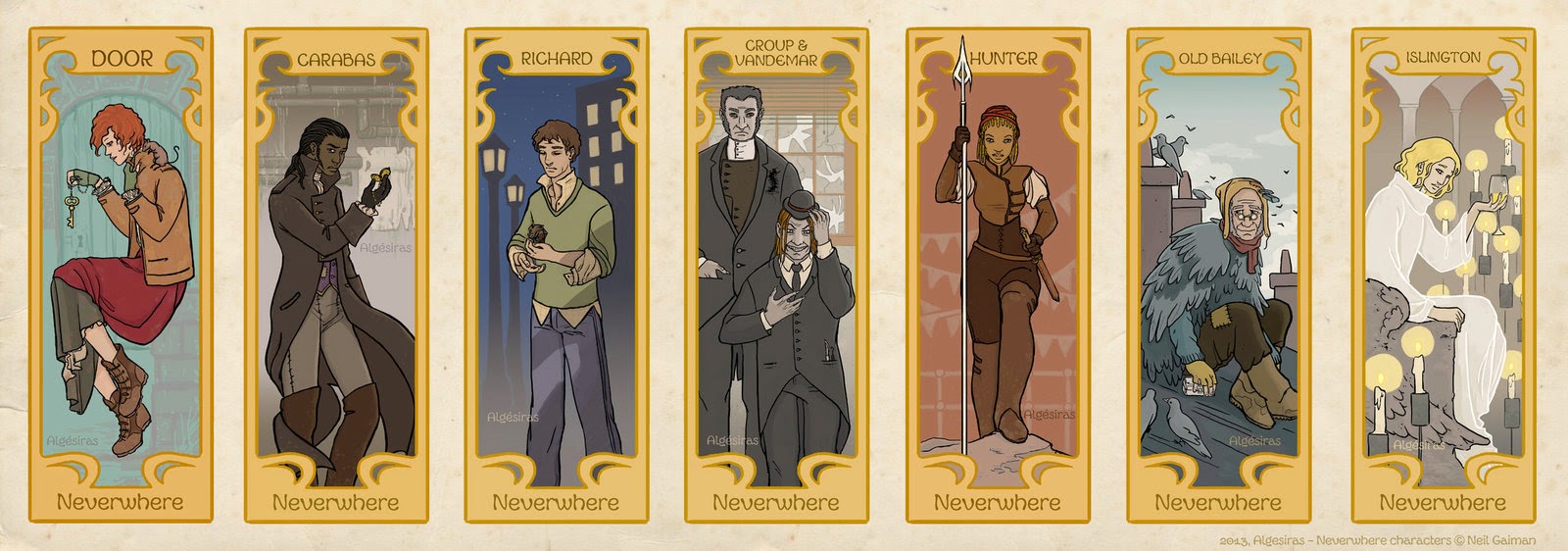I actually had no intention of reading this book, which might be surprising. I had originally set out to read American Gods by Neil Gaiman--which my dearest sister owns, but I was given Neverwhere instead. I had no idea what to expect--the only thing that I have read by Gaiman is a poem (which is excellent. It's called Instructions). Having only a very basic understanding of Gaiman and his style--I started reading with a blank mind.
As Gaiman's first novel, this book does have a lot of success as it has been adapted into T.V shows, a comic, and radio productions. This was one of the only things I knew while I went through the story. Honestly, this book is hard to describe. It's a dark twisted world of London Underground where nothing is as it seems. We follow the character of Richard, a push-over of a man, who comes into the life of Door. Yes, Door is her name--I didn't stutter. (Even after finishing the book, it still baffles me). It takes Richard out of the world that you and I know--into a world with Rat Speakers, angels, demons and just weird things.
“Richard began to understand darkness: darkness as something solid and real, so much more than a simple absence of light. He felt it touch his skin, questing, moving, exploring: gliding through his mind. It slipped into his lungs, behind his eyes, into his mouth...”
Why this book works, according to me, is because we follow Richard. We are just as confused as he is, and we don't always get clear answers. This world that we follow Richard into doesn't make sense to us--and yet we go on this trip with him watching him struggle through it. Meeting all of these characters who are creepy, and confusing--is shocking. Not to mention since we have such a limited understanding of the world already, the only way we can know more is by turning the page.
Overall, it wasn't my favorite story, but I definitely want to read more of Gaiman's work. I'm interested in watching the TV show based off of the novel. In my mind, I am associating it with Doctor Who, but they're realllly different. I don't know why I'm making that connection. Anyway, I'm super glad I read Gaiman (finally!).
Always,
Emily








%2B_02.jpg)

